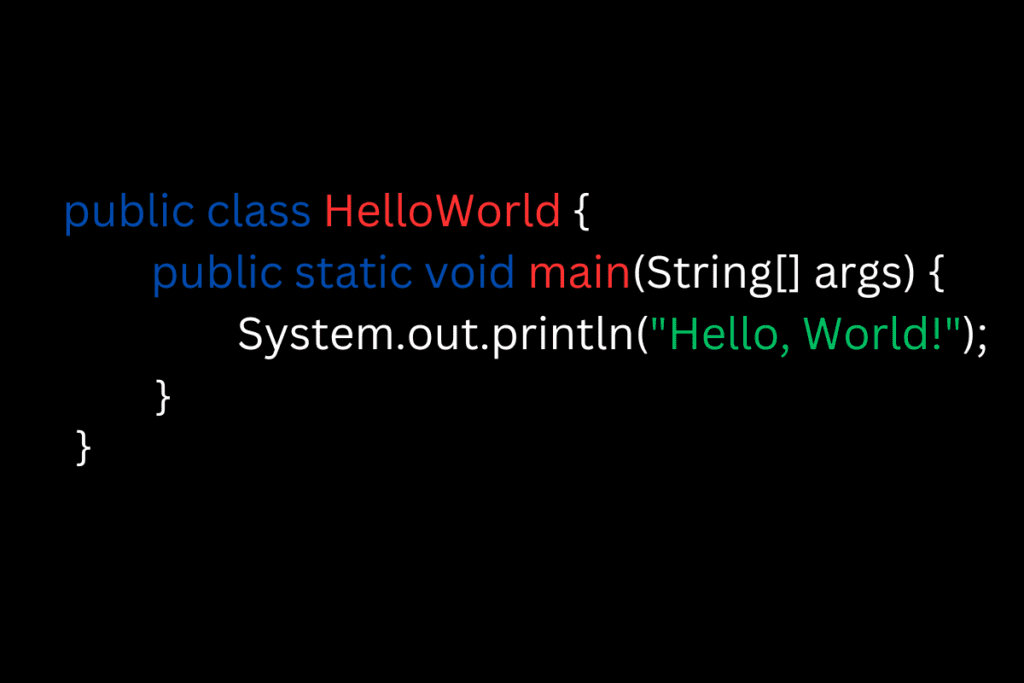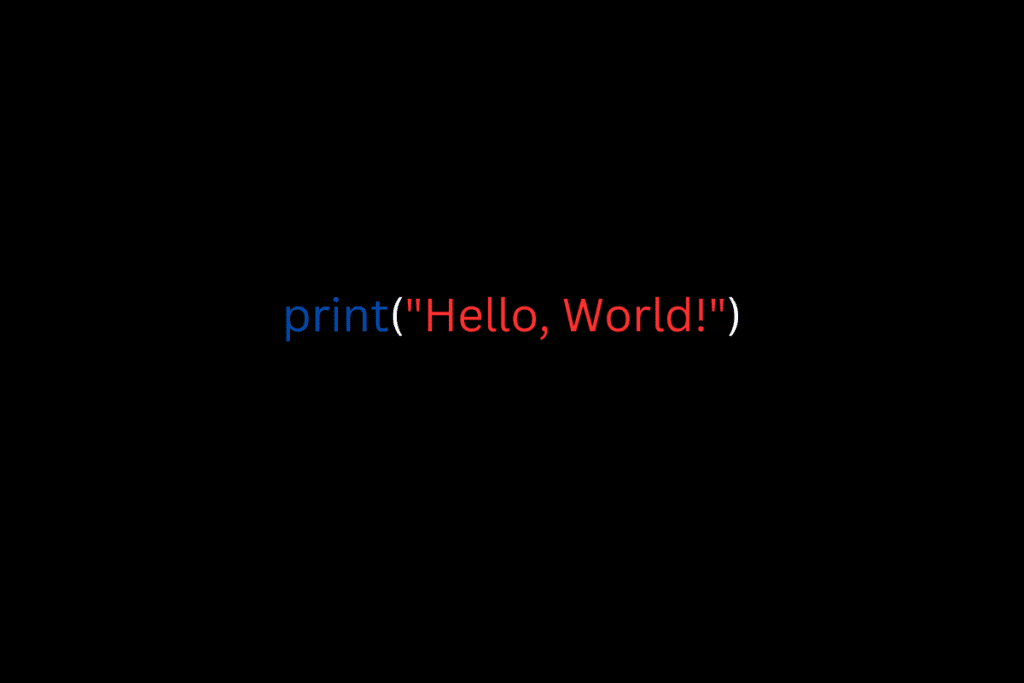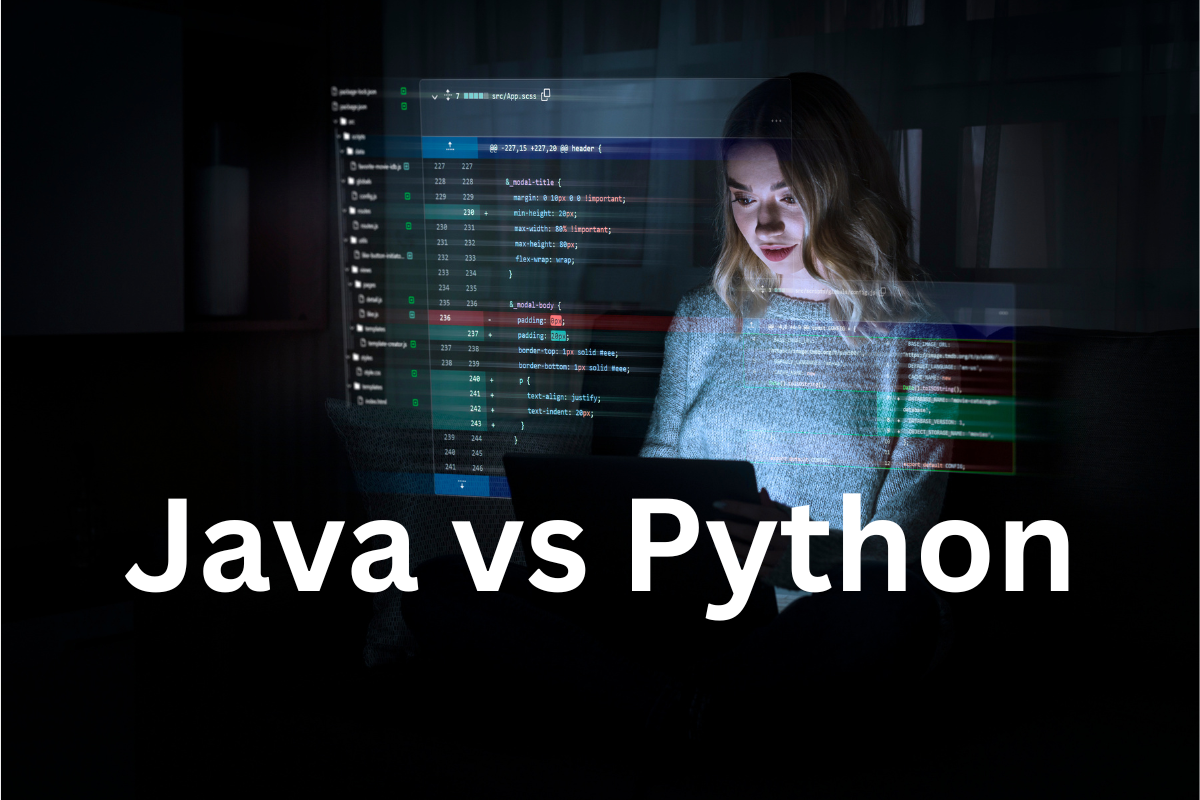Java vs Python
When it comes to choosing a programming language, Java and Python often come up as the top choices.
Both languages have their strengths and weaknesses, and the best choice depends on your specific needs and goals.
In this article, we’ll dive into the key differences between Java and Python, exploring aspects like syntax, performance, use cases, community support, and more.
This comprehensive comparison will help you understand the “Java vs Python” debate and decide which language is the right fit for you.
Introduction to Java
Java is a high-level, object-oriented programming language developed by Sun Microsystems (now owned by Oracle) in 1995.
It was designed with the philosophy of “write once, run anywhere,” meaning Java code can run on any device that supports the Java Virtual Machine (JVM).
This makes Java a versatile and platform-independent language.
Introduction to Python
Python created by Guido van Rossum and first released in 1991, is an interpreted, high-level language known for its simplicity and readability.
Python’s design philosophy emphasizes code readability and simplicity, making it a great choice for beginners and experienced developers alike.
It’s commonly used in technology, data science, web development, and other fields.
When comparing Java vs Python, Python stands out for its ease of use and versatility, making it a popular choice across various domains.
Syntax and Readability
Java:
Java’s syntax is similar to C++ and is known for its Verbosity. Verbosity means that the language requires writing more lines of code or more detailed syntax to accomplish tasks compared to other languages. Here’s an example of a simple Java program:

While Java requires more lines of code, its strict syntax can help catch errors at compile time, which can be beneficial for large-scale applications.
Python:
Python is celebrated for its clean and readable syntax. Python’s syntax is commended for being clear and easy to read.
Here’s the same program in Python:

Python’s syntax is concise and straightforward, which makes it easy to write and understand. This simplicity reduces the time needed to develop and maintain code, which is particularly advantageous when comparing Java vs Python for various project.
Performance
Java:
Java is a statically typed language, variable names must be stated explicitly.
This allows for optimized performance and faster execution compared to dynamically typed languages.
Java’s performance is also boosted by the Just-In-Time (JIT) compiler, which compiles code at runtime to improve efficiency.
Python:
Python is an interpreted, dynamically typed language, which makes it slower than Java for certain tasks.
However, Python’s performance can be enhanced using third-party libraries and tools such as PyPy (an alternative implementation of Python) and Cython (which allows C-like performance).
Use Cases
Java:
Android Development:
Java is widely used in enterprise environments, particularly for building large-scale web applications, Android apps, and server-side technologies. Key areas where Java excels include:
Web Development:
Using frameworks like Spring and Hibernate.
Android Development:
Java is the primary language for Android apps.
Enterprise Applications:
Java’s robustness and scalability make it ideal for enterprise-level applications.
Python:
Python is incredibly versatile and is used in a variety of domains, including:
Web Development:
With frameworks like Django and Flask.
Data Science and Machine Learning:
Libraries like TensorFlow, pandas, and NumPy are examples of Data Science and Machine Learning.
Automation and Scripting:
Python’s simplicity makes it perfect for writing scripts and automating tasks.
Scientific Computing:
Widely used in academia and research.
Community and Support
Both Java and Python have large, active communities that provide extensive support and resources.
Java:
Mature Ecosystem:
Java has been around for over two decades, resulting in a mature ecosystem with a wealth of libraries, frameworks, and tools.
Enterprise Support:
Strong backing from Oracle and widespread use in enterprise environments.
Python:
Rapid Growth:
Python’s community is growing rapidly, particularly in the fields of data science and machine learning.
Educational Resources:
Abundant tutorials, documentation, and forums make learning Python accessible for beginners.
Learning Curve
Java:
Java has a steeper learning curve due to its verbose syntax and the need to understand object-oriented programming concepts from the outset.
However, once mastered, these concepts are transferable to other languages.
Python:
Python’s syntax is simpler and more intuitive, making it an excellent choice for beginners.
Its readability and straightforward syntax allow new programmers to focus on learning programming concepts rather than complex syntax rules.
Job Market and Salary
Java:
Java developers are in high demand, particularly in the enterprise sector.
According to various job market analyses, Java developers tend to have strong job security and competitive salaries.
Python:
Python’s popularity in emerging fields like data science, AI, and machine learning has led to high demand for Python developers.
It is one of the best easiest programming languages.
Python developers often command high salaries, particularly those with expertise in data science and machine learning.
Conclusion:
Both Java and Python are powerful, versatile languages with their own strengths and weaknesses. Your choice between the two should depend on your specific needs and goals.
- Java if you’re interested in building large-scale enterprise applications, Android apps, or require high performance and scalability.
- Python if you value simplicity and readability, or if you’re working in fields like data science, web development, or automation.
Ultimately, learning both languages can be highly beneficial, as each has unique features and strengths that complement the other.
By understanding the differences and advantages of Java and Python, you can make an informed decision that aligns with your career goals and project requirements.
This comprehensive “Java vs Python” comparison will guide you in choosing the right language for your needs.


